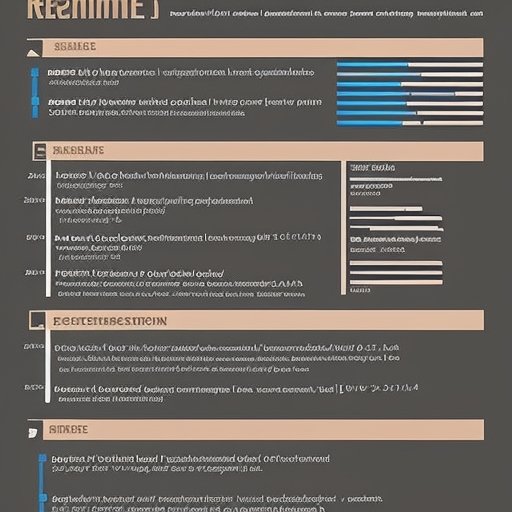6 critical skills to transition from Controller to CFO
A finance controller typically has a background in accounting and financial analysis. As such, they are well-equipped to handle the financial reporting and analysis functions of a company.
To become a CFO, however, one would likely need additional experience within corporate strategy and management. A CFO is ultimately responsible for all aspects of a company's financial health, including strategic planning, budgeting and forecasting, risk management, and investor relations.
A recent study by Gartner showed that only 33% of Financial controllers tend to become CFO's. Which means two-thirds of the CFO jobs went to non-controller candidates, so there is plenty of opportunity for those who prepare to compete.”
To successfully transition from a finance controller to CFO, you must possess six critical skills. These skills are essential for overseeing all financial operations and ensuring that the company meets its financial goals. While not an exhaustive list, mastering these abilities will give you a strong foundation for furthering your career in finance.
Controller to CFO
Do also read our blog on Top 5 Essential skill to put on your finance resume by 2025
1. Evolve your leadership style
Move from a command-and-control style of leadership toward a collaborative and open manner. Successful CFOs lead with an “open style that persuades others to buy into a solution and to work as a team to implement it.”
in contrast, controllers “show themselves as methodical and analytical, focusing on quality and accuracy.”
2. Learn from others.
Rely less on your technical expertise and embrace and draw on the strengths of others. Controllers become “task-focused leaders when under pressure. They communicate clearly and matter-of-factly, issue concise directions, delegate responsibilities, and emphasize policy adherence.
Obtaining buy-in and motivating the team are not usually high on the controller’s list.” in contrast, CFOs under pressure have a “fluid leadership style that manages toward swifter action through alternative solutions in concert with others.
3. Become situationally aware.
Keep your eyes open for situations that allow you to work collaboratively to solve problems. Controllers must be “attuned to professional situations that lend themselves to interactive leadership styles.”
4. Focus on people
Replace some of your emphasis on monitoring day-to-day minutiae with more attention to relationships and team-building.
Controllers need to “involve stakeholders in identifying the issues and finding solutions when problems are not well defined. This develops and exhibits competencies emphasizing getting things done through others and building teamwork.”
5. Improve creative thinking.
Try to combine innovation with solid execution and resist the tendency to change direction quickly as the environment shifts.
Controllers tend to “adjust quickly to changing situations, a flexible style that better suits the environment of a controller.”
In contrast, a CFO “takes the time to play with different solutions. This allows them to explore options in the context of the larger issues and to consider input from multiple stakeholders.”
6. Data analysis.
Controllers must be able to understand and process large amounts of data. This skill set enables you to extract useful information from data, identify problems, and provide business solutions.
While a CFO will rely on others to process large amounts of data, the experience you gain as a controller in this area will help you understand the underlying factors of data from a more big-picture perspective.” If data analytics is not your suite, you can take a certification course from AICPA and get skilled.
Getting the Promotion
Controllers will find themselves in a favourable position to become CFOs. But success will depend on their ability to evolve into leaders who rely less on technical skills and more on their abilities to motivate and engage those who work for them. Fortunately, leadership is a skill that can be learned by those who are willing to put in the effort.”
All the above skill sets will help controllers succeed in any role. They do not have to take on a new positions to leverage their skills.
The key to successfully applying them to a C-level position is to step back and translate them into a big-picture, strategic perspective.
From the blog
View allOther popular blogs
Follow these links to help you prepare for the ACCA exams
Follow these blogs to stay updated on IFRS
Use these formats for day to day operations
- Account closure format
- Insurance claim letter format
- Transfer certification application format
- Resignation acceptance letter format
- School leaving certificate format
- Letter of experience insurance
- Insurance cancellation letter format
- format for Thank you email after an interview
- application for teaching job
- ACCA PER examples
- Leave application for office
- Marketing manager cover letter
- Nursing job cover letter
- Leave letter to class teacher
- leave letter in hindi for fever
- Leave letter for stomach pain
- Leave application in hindi
- Relieving letter format
Link for blogs for various interview questions with answers
- Strategic interview questions
- Accounts payable interview questions
- IFRS interview questions
- CA Articleship interview questions
- AML and KYC interview questions
- Accounts receivable interview questions
- GST interview questions
- ESG Interview questions
- IFRS 17 interview questions
- Concentric Advisors interview questions
- Questions to ask at the end of an interview
- Business Analyst interview questions
- Interview outfits for women
- Why should we hire you question
Popular blogs
Leave application format
Crafting the perfect leave application for any scenario, from personal emergencies to medical leaves, often presents a challenge. To simplify this task, we've assembled an extensive index of leave application formats designed for various circumstances. Our collection is aimed at enhancing the clarity and professionalism of your leave requests. Dive into our index to discover the template that aligns with your specific needs, facilitating a smoother leave application journey.
List of Leave application formats
- Leave application for office
- Leave application for school
- Leave application for sick leave
- Leave application for marriage
- leave application for personal reasons
- Maternity leave application
- Leave application for sister marriage
- Casual leave application
- Leave application for 2 days
- Leave application for urgent work
- Application for sick leave to school
- One day leave application
- Half day leave application
- Leave application for fever
- Privilege leave
- Leave letter to school due to stomach pain
- How to write leave letter










Leave a comment